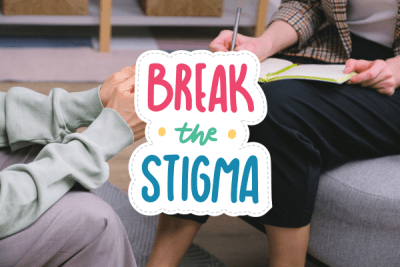Should I go to Therapy? Pros and Cons…
What is therapy and how does it work?
Therapy is the act of going to speak with a professional about your concerns. In a traditional format, that takes place once a week for 50 minutes. There’s different terminology for the professionals that conduct sessions. They can be called counsellors, psychotherapists, counselling or clinical psychologists, but in all cases, they work in the same way, which is to work with you to alleviate your symptoms and difficulties.
How do you determine if you need therapy?
In my opinion, almost anyone can benefit from seeing a therapist. I speak from experience. One of my proudest achievements is being in therapy since a very young age, and I continue to go. It helps me in a preventative way. It helps me to unburden myself each week and to gather my thoughts, which I feel has really served me in good stead.
Many people will reach out and try to find a therapist at their low ebb, which is perfectly understandable. But it’s often helpful to have a therapeutic relationship in place before the going gets tough. That way you don’t have to work on getting to know a new professional. They’re already very familiar with your background and circumstances, which means that they might better assist with the challenges that you’ll face in life.
What are some of the benefits of going to therapy?
I think that there are so many benefits of going to therapy. There’s the weekly debrief and the time for oneself. It’s a safe and contained space that is confidential and is unlike speaking with a friend or a family member, who might not be impartial, who may judge you (though hopefully not!). Therapists devote time to hearing your difficulties and to supporting you by asking some very important questions and making observations. This is really helpful in terms of getting to understand ourselves a little bit better.
We spend so much time working on external projects; we do things for other people and for organisations. But how often do we take the time to sit and think inwards and reflect about our own inner world? How we’re feeling, what our thoughts are like, what our behaviours are lately? Therapy offers this very space to do that.
Are there any potential drawbacks or risks associated with therapy?
There may be the drawback of it being an investment of time and cost, so we’re deploying resources that we might be able to direct otherwise. So, I think it’s a question of how much do you value yourself? How much are you willing to give yourself and devote that time and that expense to opening up and to be able to sort through and untangle some of the difficulties?
In my humble opinion, it is a deeply rewarding experience, not only for oneself but it can often have a ripple effect so that our friends, family, loved ones, colleagues, and society even can be helped by the fact that we may be more resilient, we may be calmer and less provoked to anger. The benefits, in my view, do outweigh the downsides, but it is equally important to weigh up for yourself whether you think that therapy is something that you’re willing to put the time and the mental energy into.
Can therapy be effective for everyone or are there certain conditions or situations where it may not be beneficial?
There might be some circumstances in which therapy may not be helpful. They include times when you’re not able to access your thoughts for example when you are intoxicated. You might be in such a condition as extreme stress reaction, or early bereavement, that it might be better to let some time lapse before going into therapy.
Equally, when there’s resistance and you’re feeling very reluctant to therapy and you do not like the idea, or you’re encouraged (dare I say forced) by someone else to go into it, it may not be effective either. It’s important that there’s an element of motivation because that really can help the flywheel of benefits that take place in the therapy process. Without which, it’s likely, in many cases, to stall.
Stigma and therapy – how can we overcome it?

I think there is still some stigma left about going into therapy. It has lessened a great deal. When I began to practice in the early 2000s, it was often something to be ashamed of. For a lot of people, they would want their email addresses hidden, or they wouldn’t want the reports sent to their home in case their partner found out.
Whereas now, we find that clients are generally much more at ease and open with the notion of going to see a professional for support.
Indeed, it’s always been our view that it’s a sign of strength, and I’m so pleased that an increasing number of people are coming around to thinking that way as well. There’s been such a wonderful movement in general about people trying to demonstrate the value of being vulnerable, of sharing, of opening up, not hiding the fact that we go through painful events and that we suffer psychological distress. The more this conversation is taking place, the more that helps with reducing the stigma.
How does one go about finding the right therapist?
Trying to find the right therapist is tricky, it really is. I’ve had that experience. I’m on my fourth therapist, and I’m very pleased to say that we’ve been working together for 15 years now. It isn’t straightforward to find someone who is a good fit for you. I think a really good place to start is by asking around and getting a recommendation. For example, if friends or family have been, or know of someone who’s been to therapy. It’s probably a bit too close if your family member has seen that same therapist. Having said that, word of mouth is often very effective. Equally, your GP may be a good source. We’ve created a therapy platform, as well as our therapy clinics, because we’re able to sift through and select what we consider the finest therapists.
Increasingly, there are a good number of resources online where you can find therapists as well. My recommendation is to read up on the reviews because that often gives you a flavour of what other clients have experienced with that therapist. Perhaps watch a video they’ve recorded or read their biographical profile thoroughly, just to get a bit more of a sense of what they could be like for you.
How long does therapy typically last and is the commitment worth it, how is it like going to the gym?
As a rule, therapy is generally a minimum of several sessions, often many more. The more that you go, the more that you benefit. It’s almost as if you’re going to train a new skill. If you’re learning a language or if you’re training in the gym, you’re building muscle, and you’re building skills. The more that you do it, the more that skillset progresses.
Therapy can take very interesting turns over time. Often, you might reach a point where you feel uncertain about what more could you gain from continuing to go to therapy? But new surprises often come up and and interesting turns are taken. The beauty, I think, of long-term therapy is that the therapeutic relationship, the dynamic that you have with your therapist, continues to evolve and mature and nurture. That can be such a springboard into improvements in other relationships in your life as well.
What advice would you give to someone who’s on the fence about going to therapy? 
If someone’s on the fence about going to therapy, I would encourage them to look inward and do an analysis of the pros and cons. Consider whether now might be the right time for you. If there is some motivation, then that can often be a good clue that you are ready. If you’re resistant towards it, maybe wait a little while to get to a place where you’re open to the possibility.
One final word of recommendation is to not look to therapy as a magic cure. It isn’t the solution to all of your problems. In many cases, it will help you to manage certain conditions and emotions. We don’t want to banish anxiety and low mood entirely, as these do give colour to our lives. We can’t always be at a high level of emotion, mood, and energy. Life has its ebbs and flows. The beauty of therapy, I believe, is that it equips you to be resilient in the face of adversity. When adversity comes – because it inevitably does – therapy provides the tools and understanding needed to navigate these challenges.




